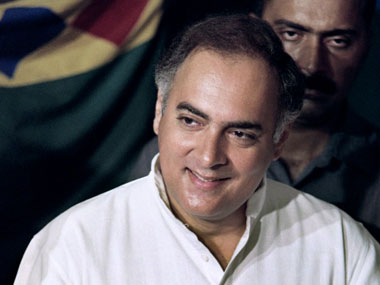New Delhi, Feb 29: Former RBI governor Raghuram Rajan has said slowdown in growth is due to the current government focussing more on meeting its political and social agenda rather than paying attention to the economy.
India can still reverse its slowing economic growth by paying attention to key issues, he said. "It's a sad story, I think most recently, it is politics," Rajan said in response to a question on what was stopping India's growth which remains below potential.
In an interview to Bloomberg TV, Rajan said unfortunately the current government after a massive election win has "focussed more on fulfilling its political and social agenda rather than paying attention to the economic growth".
"Unfortunately, this drift has continued a pace of slowing growth, which was precipitated initially by some actions the government took such as the demonetisation and a poorly rolled out Goods and Services Tax (GST) reform," Rajan said.
India's GDP growth hit nearly 7-year low of 4.7 per cent in the December quarter, as per official data released on Friday.
The GDP growth for the quarter is the lowest since January-March of 2012-13.
In the interview, which was telecast before the official numbers were released, Rajan said India has not paid sufficient attention to cleaning up the financial sector and unfortunately, that is leading to the slowing growth.
"These are things that they can change if attention is paid to them and appropriate actions are taken," Rajan, Professor of Finance at University of Chicago Booth School of Business, said.
On being asked about the spread of the coronavirus globally and its impact, he said there will certainly be some legacy issues in terms of business rethinking in the global supply chain.
"If it is disrupted anywhere, the entire supply chain is held ransom and companies are going to start rethinking that should we actually have these really spread out global supply chain or to bring them back closer home and how much diversification should we have. Should we have multiple production sites across the world rather than have it focussed primarily in Asia," he said.
 New Delhi, Apr 25: The Supreme Court Friday referred to a constitution bench the question whether the government can release a life term convict whose death sentence has been converted into life imprisonment and said that the seven conspirators in Rajiv Gandhi assassination case will not be released for now.
New Delhi, Apr 25: The Supreme Court Friday referred to a constitution bench the question whether the government can release a life term convict whose death sentence has been converted into life imprisonment and said that the seven conspirators in Rajiv Gandhi assassination case will not be released for now.




Comments
I am really enjoying the theme/design of your web
site. Do you ever run into any browser compatibility issues?
A few of my blog audience have complained about my blog not working correctly in Explorer but looks great in Firefox.
Do you have any suggestions to help fix this issue?
My website; free events: http://iphoneways.com
What's upp to all, the contents preesent aat this web
site are genuinely aweome forr people knowledge, well, keep up
the nice work fellows.
my page :: Clifton: https://geo-news-live-tv.blogspot.com/
Woah! I'm really enjoying the template/theme of this blog.
It's simple, yet effective. A lot of times it's hard to get that
\perfect balance\" between user friendliness and appearance.
I must say you have done a awesome job with this.
In addition, the blog loads super fast for me on Firefox.
Outstanding Blog!
Feel free to surf to my page - crack seo tools: http://manuelasolano4.unblog.fr/2015/12/27/suggestions-to-expand-your-s…"
Add new comment